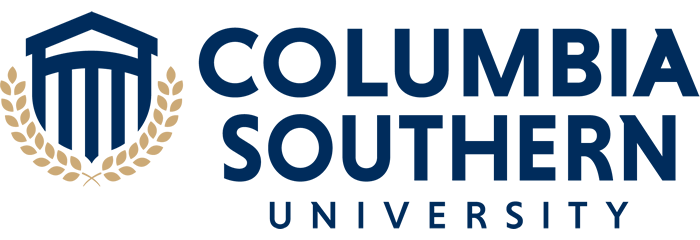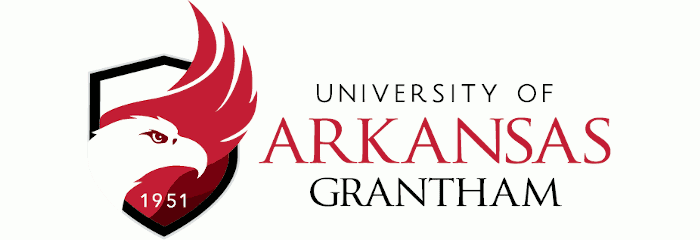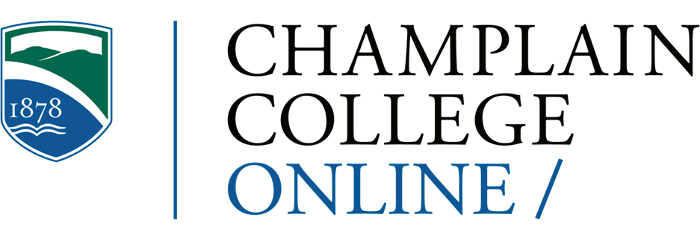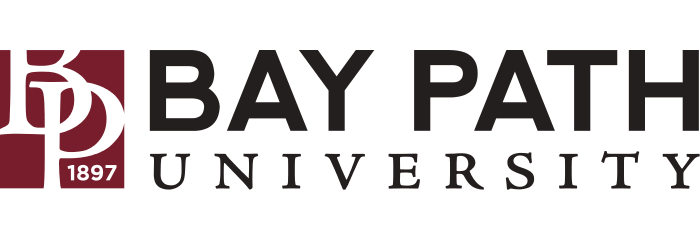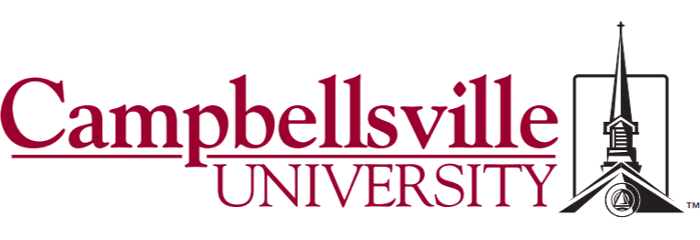Our list of the most popular online forensic science degrees highlights accredited schools enrolling the largest number of distance learners.
Key Takeaways:
- Arizona State University Online ranks #1 for online enrollment with 52,896 learners, placing it in the 100th percentile nationally.
- Champlain College's online Bachelor of Science in Computer Forensics & Digital Investigations holds the #1 spot for median earnings at $89,716.
- Waldorf University earns the #1 recommendation rate at 95% based on students we've surveyed.
Read our methodology to learn more about how we rank schools.
List Of Accredited Online Forensic Science Schools
| School | Online Enrollment | Annual Tuition |
|---|---|---|
| Arizona State University, Online | $24,780 | |
| Liberty University | 39,168 | $11,700 |
| Purdue Global | 31,661 | $11,130 |
| Columbia Southern University | 13,111 | $8,100 |
| ECPI University Online | 6,854 | $18,484 |
| Regent University Online | 3,407 | $10,880 |
| University of Arkansas Grantham | 3,203 | $9,150 |
| Waldorf University | 1,531 | $9,900 |
| Champlain College | 1,104 | $10,050 |
| Bay Path University | 841 | $12,300 |
| Florida Tech - Online | 629 | $15,600 |
| Campbellsville University | 483 | $12,720 |
2025 Most Popular Online Forensic Science Degrees
- Online Enrollment: 52,896 enrolled
- Annual Tuition: $24,780
- Locations: Tempe (AZ) (and 4 others)
Why we like them: Ranked #1 for popularity on our list, ASU serves 52,896 online learners, placing it at the very top of the field for online enrollment. The forensic science degree is online but does have two, separate summer in-person lab experiences held on campus, which give you real crime scene and laboratory practice.
- Online Enrollment: 39,168 enrolled
- Annual Tuition: $11,700
- Location: Lynchburg (VA)
Why we like them: As one of the largest nonprofit Christian universities with a long history in online learning, Liberty offers scale and support that smaller forensics programs lack. Liberty's online Crime Scene Investigation track emphasizes job-ready CSI practice through targeted courses like Crime Scene Photography and Crime Scene Management rather than only survey content.
- Online Enrollment: 31,661 enrolled
- Annual Tuition: $11,130
- Location: Indianapolis (IN)
Why we like them: The CSI concentration (one of six options) blends the big-picture criminal justice system with the technical demands of forensic work. A capstone project and optional internship provide practical applications of investigative skills, helping students connect online coursework to real-world scenarios.
- Online Enrollment: 13,111 enrolled
- Annual Tuition: $8,100
- Location: Orange Beach (AL)
Why we like them: CSU's Forensics concentration within the B.S. in Criminal Justice Administration lets you integrate management and operational justice coursework with specialized forensic study classes to help provide you with a leadership edge. Some unique courses are Digital Forensics and the Courtroom and Pathology of Death.
- Online Enrollment: 6,854 enrolled
- Annual Tuition: $18,484
- Locations: Multiple Locations
Why we like them: At ECPI, you complete the work through practice that mirrors real investigative scenarios and complete both a CJ capstone and an arts and sciences capstone, which can strengthen portfolio evidence for hiring. If you want applied exposure, the cataloged externship option and targeted electives offer focused skill-building beyond standard digital forensics coursework.
- Online Enrollment: 3,407 enrolled
- Annual Tuition: $10,880
- Location: Virginia Beach (VA)
Why we like them: Regent's program is unique for its Christian worldview that's applied across all technical training, so you practice evidence handling and decision-making through an ethical lens that most forensics programs do not emphasize. The program culminates in a capstone on cybercrime and digital investigation that synthesizes tools, procedures, and reporting.
- Online Enrollment: 3,203 enrolled
- Annual Tuition: $9,150
- Location: Kansas City (KS)
Why we like them: UA Grantham’s online program has two targeted options — Computer Forensic Investigation or Homeland Security — where the former goes beyond basics into ethical hacking, network security, and criminal intelligence analysis using machine learning, an uncommon depth at the bachelor’s level. You also complete CITI research ethics certification in Research Methods.
- Online Enrollment: 1,531 enrolled
- Annual Tuition: $9,900
- Location: Forest City (IA)
Why we like them: Waldorf positions forensic psychology as a track inside the BS in Criminal Justice, offering a justice-system lens. We value the sizeable 17-credit block of professional electives within the major, which enables you to truly customize your own pathway to be geared toward distinct roles across the justice continuum (for example, victim services, corrections, or investigative support).
- Online Enrollment: 1,104 enrolled
- Annual Tuition: $10,050
- Location: Burlington (VT)
Why we like them: Champlain's purpose-built Forensic VDI lets you practice end-to-end investigations with the same tools used in the field, including X-Ways Forensics, EnCase, FTK Imager, Autopsy, Magnet AXIOM/IEF, Cellebrite UFED, Volatility, Kali Linux, Wireshark, RegRipper, and more. You can build a production-grade toolchain to gain experience. For the capstone, you draft a search warrant and execute a full case.
- Online Enrollment: 841 enrolled
- Annual Tuition: $12,300
- Locations: Longmeadow (MA) (and 1 other)
Why we like them: Bay Path's bachelor's program in forensics is online mostly but does have eight lab-based courses that mirror professional casework and train you on tools often reserved for practitioners with years of experience. High performers can leverage a 4+1 acceleration beginning senior year to reach a graduate credential on an expedited timeline.
- Online Enrollment: 629 enrolled
- Annual Tuition: $15,600
- Location: Melbourne (FL)
Why we like them: As part of Florida Tech's psychology major, you can get distinctive forensic breadth through Victim Studies and Advocacy, Forensic Clinical Psychology, and Law and Psychology, so you practice interviewing, assessment, advocacy, and the interface with legal procedures and expert testimony in one track.
- Online Enrollment: 483 enrolled
- Annual Tuition: $12,720
- Location: Campbellsville (KY)
Why we like them: First, you benefit from an IACBE-accredited business education as well as a no-application-fee policy if you went with Campbellsville's business degree with a Cybersecurity and Forensics focus. As part of this program, you can study how to safeguard networks and computing resources while also learning digital forensics. These skills are used to identify, trace, and respond to cyber incidents.
FAQs About Online Forensic Science Degrees
What Is an Online Forensic Science Degree?
An online forensic science degree offers a flexible route to mastering crime scene investigation and evidence analysis, with hands-on training in DNA testing and toxicology. Graduates are prepared for careers in law enforcement, forensic labs, and private investigation, with coursework covering ethics and legal standards.
Forensic science is an essential part of criminal investigations. Specialists in forensic science usually work for law enforcement agencies or departments but their work can also touch on other parts of the criminal justice system. No matter what branch of science they use, their work is designed to discover the truth about a crime and aid the courts during trials.
To become a forensic scientist, you'll need to earn at least a bachelor's degree in forensic science. These degrees go by different titles that often reflect a specialization within forensic science, such as crime scene investigation or digital forensic analysis. Regardless of these distinctions, however, most programs result in a Bachelor of Science (BS) degree.
Online bachelor's in forensic science degrees typically require the completion of 120-124 credit hours. Most students need four to five years of full-time study to complete all of the program requirements. Part-time students may need longer.
Besides classwork, most forensic science programs require many hours of lab and field work. Programs may include an internship or capstone course that ties together students' knowledge and provides an opportunity to gain real-world experience.
If you're not sure about pursuing a forensic science degree, you may want to consider programs in related fields. Learn more about online bachelor's degrees in criminology, cybersecurity, or law enforcement.
What Courses Do You Take in an Online Forensic Science Degree?
Online forensic science programs are designed to teach students about criminal procedure and applied research methods. Some concentrations focus on more specific areas of criminal procedures. For example, forensic biology programs teach students to evaluate biological evidence, such as blood and saliva, and determine DNA findings.
Below, we've listed several examples of courses that undergraduates are likely to encounter in a forensic science program:
- Crime Scene Investigation: This course covers the fundamentals of processing a scene and following legal methods for evidence collection. Techniques include photography, fingerprinting, hair and fiber collection, and witness interviews. Faculty emphasize the importance of the chain of evidence in the criminal justice system.
- Forensic Chemistry: Professors in this class discuss the uses and limits of chemistry for analyzing evidence. Students use common lab equipment to analyze samples of various substances, including fibers, paint, hair, and soil. Online students may use a local facility for lab experience or may receive a lab kit for home use.
- Forensic Criminology: Students learn the role of forensic science and technology in understanding and prosecuting criminal acts. The curriculum generally ranges from gathering evidence at crime scenes to answering questions in court. Topics can include technology advances through the years, the "CSI effect" on jury expectations, and the role of DNA in correcting miscarriages of justice.
- Introduction to Forensic Psychology: A forensic psychology class is designed to help students understand criminal behavior. Students learn the history of behavioral analysis in law enforcement and psychology's impact on criminal defense and sentencing reform. The curriculum also introduces the basic methodology for writing psychological profiles to be entered into evidence.
- Research Methods in Criminal Justice: Learners use the scientific method to design studies and test the results. As a final project, they map out an original research project seeking to answer a question relevant to forensic science. Professors may also share cutting-edge research in the field and discuss the methods researchers used in their designs.
What Can You Do With a Forensic Science Degree?
Depending on the program, courses, and electives you choose, a bachelor's degree in forensic science can prepare you for a number of different career paths. You might spend most of your time at crime scenes, collecting evidence and searching for information. Then again, you may work in a crime laboratory, where you'll process and analyze evidence.
We've listed a few forensic science jobs below that graduates can attain once they've earned a bachelor's degree in forensic science. The Bureau of Labor Statistics (BLS) places these jobs in the broad category of , who earn a median annual salary of $67,440 and can expect a job growth rate of 13% through 2034.
- Crime Scene Investigator: CSIs collect and document physical evidence from crime scenes and ensure its safe passage to a crime laboratory. They often assist medical examiners during autopsies to document evidence and contribute to toxicology reports. Many CSIs are sworn police officers who specialize in this field, but others are civilians. Job requirements vary by department.
- Criminalist: These are the crime laboratory technicians who analyze and interpret forensic evidence, including trace evidence. They must be organized and meticulous because any procedural misstep could damage an investigation or trial. Criminalists typically specialize in a particular field of forensic evidence, such as toxicology, ballistics, or explosive residue and debris. The offers certification exams in eight specialties.
- Digital Forensic Analyst: These forensic analysts examine data from computer and mobile devices to use as digital evidence and detect both traditional crime and cybercrime. They are trained to recover deleted computer files, track people's locations using GPS information, and interpret security camera footage and audio recordings. Depending on their expertise, a digital forensic analyst might join one of several professional organizations for career development and support.
- Forensic Document Examiner: These analysts are experts in writing instruments and technology, writing materials, and handwriting. They might authenticate a document by analyzing its ink, restore a damaged document to legibility, or compare handwriting samples to convict or exonerate a suspect. The provides continuing education on methods and materials and also certifies examiners.
Is a Forensic Science Bachelor's Degree Worth It?
There's no answer to this question that suits every person. You need to weigh the factors that are most important to your lifestyle and goals when deciding whether to pursue a bachelor's degree in forensic science. This degree may lead to a fulfilling job in a growing field but be sure to consider all of the pros and cons before choosing to pursue it.
Potential Benefits
- Forensic science professionals report moderate to high levels of job satisfaction. They tend to point to the as a major factor in their happiness with their career.
- Earning a bachelor’s degree in forensic science prepares individuals to earn higher levels of education in this area, such as a Master’s of Science in Forensic Science or Forensic Psychology. An advanced degree may qualify you for higher-paying positions in the field of forensic science.
Potential Drawbacks
- The BLS predicts an 11% job growth rate for forensic science technicians, but the actual number of these jobs is small. The BLS expects only 2,500 new positions each year from through 2031. Jobs in some specialties may be in greater demand than others.
- According to a , professionals who work at crime scenes tend to have higher levels of stress and greater potential for burnout than their lab-based colleagues.
- Since technology is always improving and new scientific discoveries are constantly being made, forensic science technicians must commit to continuous learning to keep up with new information.
What Should You Know Before Enrolling in an Online Forensic Science Degree?
Selecting a college program is a major decision, so it's important to have as much information as you can before you enroll. One thing you'll want to check on is each school's accreditation status. All of the schools on our list of the best online forensic science degrees are accredited. This means that each school has been reviewed by an authorized, independent authority to make sure that it meets national standards for educational excellence.
Not only is it an assurance of a quality education, attending an accredited school can also make it easier to qualify for financial aid or to transfer credits to another school. A bachelor's degree from an accredited college may also be required to be accepted into a master's program.
In addition to institutional-level accreditation, individual programs can earn accreditation. The (FEPAC) is the accrediting agency for forensic science degree programs. For a program to be accredited by FEPAC, it must be designed to meet forensic science industry standards.
You may also want to consider the benefits of enrollment in a forensic science online program. Colleges have offered distance learning programs in the sciences for decades, and many students are drawn to the flexibility of online coursework. Asynchronous courses that allow you to access course materials and complete assignments on your own schedule are especially appealing for some students. However, others prefer the interaction of a classroom and the ability to question professors in real time in classrooms or laboratories.
What Else Should You Consider?
Of course, there are several other factors to consider before choosing a forensic science degree program. Cost is one of them, and tuition is only one part of the total cost of a degree. You'll also need to add in fees, books, and other supplies.
If you're looking to save money, keep in mind that online students don't need to pay for college room and board or transportation, which can lead to considerable savings. Applying for financial aid can also help you reduce costs. Another option is to complete 45-60 credit hours at a less expensive community college and then transfer credits to a four-year university to complete your undergraduate degree.
Each school's application deadlines and admissions criteria may influence your decision as well. Some colleges are more selective about the students they accept. Depending on the college's admissions criteria, you may need to have earned a high school GPA of at least 2.5 or possibly higher. The most selective schools often set earlier application deadlines, so you may need to apply up to a full year in advance of the fall semester when you plan to start attending classes.
If you're looking for ways to save money on your education, be sure to check out our lists of the most affordable online criminal justice bachelor's degrees, criminal justice master's degrees, forensic accounting bachelor's degrees, and forensic science master's degrees.
Is Forensic Science a Good Career?
If you’re interested in science and have a desire to help victims of crime, forensic science may be a great career option for you. Overall, forensic science technicians , putting the field in the top 34% of occupations in terms of career happiness. After earning an online degree in forensic science, you can pursue a career that is satisfying and fulfilling.
Is a Degree in Forensic Science Hard?
Every student has different aptitudes and abilities, so what is easy for some may be more difficult for others. To succeed in a forensic science degree program, you'll need to demonstrate your knowledge of various sciences through tests and lab work. You'll also need to write papers on investigative forensics, the criminal justice system, and criminal justice ethics, which may be demanding.
What Degree Is Best for Forensic Science?
The best degree for forensic science depends on your career goals. If you want to be a forensic scientist involved in crime scene investigations, you'll want to pursue a bachelor's degree and possibly a master's degree in forensic science. However, you can also be part of forensic investigations with a different degree in the broader field of forensic science, such as forensic psychology or forensic accounting.
Student Reviews of Online Forensic Science Programs
I started the Bachelors program in Investigative Forensics at UMUC in the fall of 2014. I found that the classes were just as informative and difficult as the classes that i attended for my Associates Degree. I was concerned about the online learning experience but found that since I had to read the material myself and not rely on a teachers study guide, I feel that I actually learned more. The education here is great. I can understand some concerns that others have expressed about the administration.... Read More
Review Date: 12/30/2014
Would Recommend: Yes
Helpful for Career: No
I personally really enjoyed my time at Fayetteville State University. While I didn't get involved in many extracurricular activities or research opportunities as my friends, it was still an enjoyable time. There were some professors who were truly dedicated to the students and dedicated to making sure they learned the material. I would recommend a friend to attend the university.
Review Date: 6/21/2023
Would Recommend: Yes
Helpful for Career: No
Equipped with valuable resources that will help reach your goals.
Review Date: 7/22/2016
Would Recommend: Yes
Helpful for Career: Yes
I was jerked around horribly by various employees, I went in there with a Positive thinking wanting to better my self and I was withdraw without my permission then the financial service woman told me that it " looked" like I was going to owe them 1,000 dollars because of this action by whom I don't know still to this day. They reported that to my credit now they claim that owe them this money I finally was withdrawn and now I'm in over 15,000 dollars in debt my credit score is below the min for credit... Read More
Review Date: 3/1/2015
Would Recommend: No
Helpful for Career: No
I think the overall grade of the university itself is a 3/5. The specific program I went through however, forensic science, deserves a 5/5. The forensic science department at George Mason University is out standing. The professors are real world working adults who have had their experience working in the field (mostly government) and get to share their knowledge and experience with their students through their teaching. The program is very straight forward about their expectations and works with... Read More
Review Date: 6/20/2019
Would Recommend: Yes
Helpful for Career: Yes
Overall I have mixed feelings. My goal is to obtain a law degree and become an attorney. I started my associates in 2012, classes were ok but they didn't cover anything that I can say stuck with me. I started me bachelors degree in 2015 but now I am troubled because I don't know that I will be able to use it to take the LSAT or a prep class. If I could have done this all over again I would have done HCC. Teachers, I can't complain there are a couple that I can truly say have a passion for teaching.... Read More
Review Date: 12/14/2016
Would Recommend: No
Helpful for Career: No
I enjoyed going to Hilbert, the class size was small, all of my professors knew my name, it was the best. The price however is too high. They also did not have state of the art chemistry labs so I decided to attend buffalo state university. I do miss Hilbert though.
Review Date: 8/20/2014
Would Recommend: Yes
Helpful for Career: No
The professors at Mercyhurst University take the time to get to know each and every one of their students and provide guidance and assistance every step of the way. The small class sizes enable students to get the extra help that they need and allow students to feel like they are more than just a number. Although Mercyhurst University may be fairly small in size, it is not lacking in extracurricular activities, as there are plenty of clubs and organizations to become involved in.
Review Date: 7/11/2016
Would Recommend: Yes
Helpful for Career: Yes
This college is ok. I feel like the good reviews are mostly from students that do not have experience at other universities. The college barely opened up an engineering program, which it will be VERY hard to compete with ASU, considering ASU is a research college. GCU has NO research opportunities. What does this mean for a student? This means NO opportunities to research in a real laboratory with professors. This helps tremendously when getting a job, by the way. Another thing is GCU fails to have... Read More
Review Date: 1/19/2017
Would Recommend: No
Helpful for Career: No
I thought it was a good school. Small classes and good one on one teaching. I liked the small setting compared to the large setting it just had a better feel for me.
Review Date: 7/27/2015
Would Recommend: Yes
Helpful for Career: Yes
I am proud to be a graduate of the Forensic Science/Crime Scene Investigation Program at Hilbert. The program gave me an opportunity to study abroad at Bond University in Australia for a semester, created leadership opportunities, allowed me to be a student-athlete, prepared me for graduate school and most importantly opened doors for my future. The faculty at Hilbert is top notch with a world of hands-on experience in the forensic science work force. I discovered that if you put in the effort and... Read More
Review Date: 7/10/2016
Would Recommend: Yes
Helpful for Career: Yes
The Henry Lee College is very helpful and is pretty much a big family. They are always friendly and push you to succeed. Personally I always had questions and concerns because I am someone that worries about everything, but my advisors were always there to talk over everything with me and to calm me down. I double majored like most forensic science do and they made sure that I was able to complete both degrees simultaneously and in a timely fashion.
Review Date: 8/8/2014
Would Recommend: Yes
Helpful for Career: No
MTSU is a decent school. The science program however was mediocre at best. Facility was outdated and professors all seemed burned out. However, I have heard that the new science building is "amazing."
Review Date: 5/31/2016
Would Recommend: No
Helpful for Career: Yes
WCU is a great school, though it's easy to fall behind and make less than amazing grades if you aren't a self motivated person. The campus is beautiful, though sometimes I wish they would spend less money renovating things like the fountain and more money fixing up some of the dorms, especially the freshman dorms. There are good restaurant choices on campus, and also a convenience store and dining hall.
Review Date: 6/30/2015
Would Recommend: Yes
Helpful for Career: Yes
This college is known in Oklahoma for having the only recognized forensic science program and it's super awesome nursing program . It's in a small town, but the college is a bit large. We have a lot of international students here, that go on and do well in their future careers. We also have a lot of student life activities where volunteering int he community is a must. The teachers' doors are alway open. I loved my science professors, they were really open to discussing any problems you may have.... Read More
Review Date: 7/22/2016
Would Recommend: Yes
Helpful for Career: Yes
Forensic science is a very unique degree program that tends to peak employer interest. Baylor University has really developed into a high profile school and as a result, my degree has become even more valuable. I was accepted into medical school but decided after two years that is was not for me at that time. I am now a teacher and have transitioned into teaching high school and college science quite well. I have a master's degree in medical sciences and feel that I was accepted into my master's... Read More
Review Date: 8/28/2013
Would Recommend: Yes
Helpful for Career: Yes







